Help your toddler with their emotions
Toddlers have big feelings, but they sometimes struggle to express them.
By supporting your toddler to manage their emotions, you can help them develop lifelong skills to cope with big feelings as they grow.
All toddlers have big feelings
We all have big feelings sometimes and your toddler has them too.
As your toddler becomes more active and independent, they will need extra help handling their feelings.
When toddlers struggle to communicate their angry or sad feelings, they might have what some people call a 'tantrum'.
A tantrum is your toddler’s way of saying “I need some help with my big feelings”.
The more that you support your toddler with their big feelings now, the more they will be able to do this for themselves in the future.
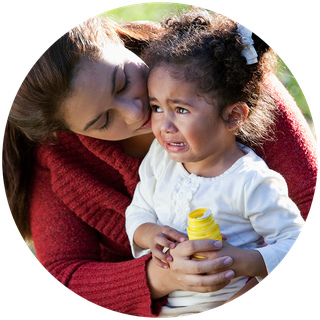
'The terrible twos'
At around 18 months old, your toddler may have more tantrums and show more frustration.
This period is sometimes called 'the terrible twos'. Although it can be a stressful time for parents and carers, it is part of their normal, healthy development.
Your toddler's brain is developing rapidly as they learn about their feelings. It will get easier as they learn to communicate their big feelings with you.
Your toddler’s brain needs help with big feelings
Some people suggest ignoring your toddler when they are feeling angry or sad, or giving them a ‘time out’ so that they learn to calm down by themselves.
You might feel the urge to tell off your toddler if they do something you think is bad behaviour, but this is the time to help them manage those big feelings instead.
Remember, your toddler’s brain is still growing rapidly and they are only just learning how to manage their emotions.
Did you know?
When toddlers are upset, the emotional parts of their brain take over. This means that they find it hard to take in new information.
Say what your toddler is feeling
You can help your toddler to understand their feelings by naming them. Saying “I can see you're feeling happy that we’re playing peekaboo” will help them to learn words to describe their feelings.
The more you do this with your toddler now, the better they will be able to tell you what’s going on for them as they grow up.
For example, emotions you may want to name are: happy, sad and angry.
Regulate, relate and reason
To help your toddler to manage their emotions, it is important that you try to be calm as you may feel frustrated too.
Take some deep breaths and remind yourself that your toddler isn’t just being naughty, they are trying to learn and grow.
A helpful way of managing big feelings in toddlers is called ‘The 3 Rs’:
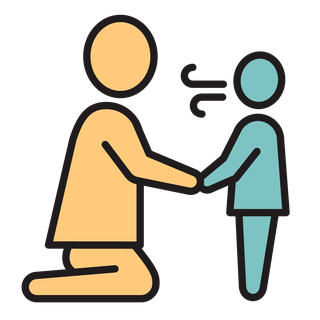
Step 1: Regulate
This means soothing your toddler to help them calm down. Remind them that they're OK and remember to name their feeling. “I can see that you’re feeling angry that you can't find your toy."
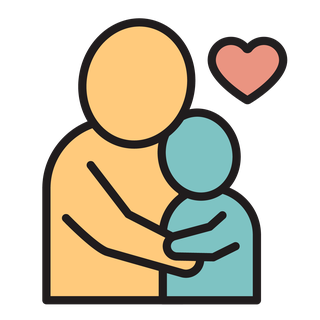
Step 2: Relate
When your toddler is feeling a little calmer, show them that you love them even when they are angry or upset. Comfort them by offering a cuddle to show them that you are still there. “I can see you feel so angry that you couldn’t play with the toy. I’m here with you.”
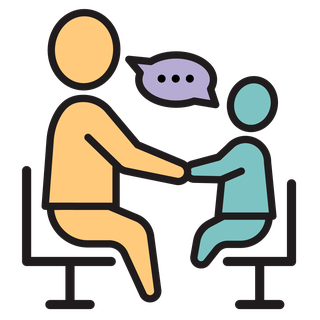
Step 3: Reason
When your toddler is calm they will be ready to learn. “It’s OK to feel angry that you couldn’t play with the toy. Everyone feels angry sometimes. But it isn’t okay to push others.”
Coping when things get tough
Supporting your toddler can be hard work, particularly if you are feeling tired or stressed.
If you are feeling worried, concerned or low in mood, support is available.
- Start for Life: Your mental health
- Every Mind Matters: Take care of your mind
- Family Hubs: Family Hubs and support
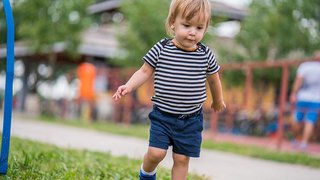
Playtime activities and bonding with your toddler
Playtime is really important for your child's development. It's also a great way to bond too. Check out some activity ideas you can do together.
